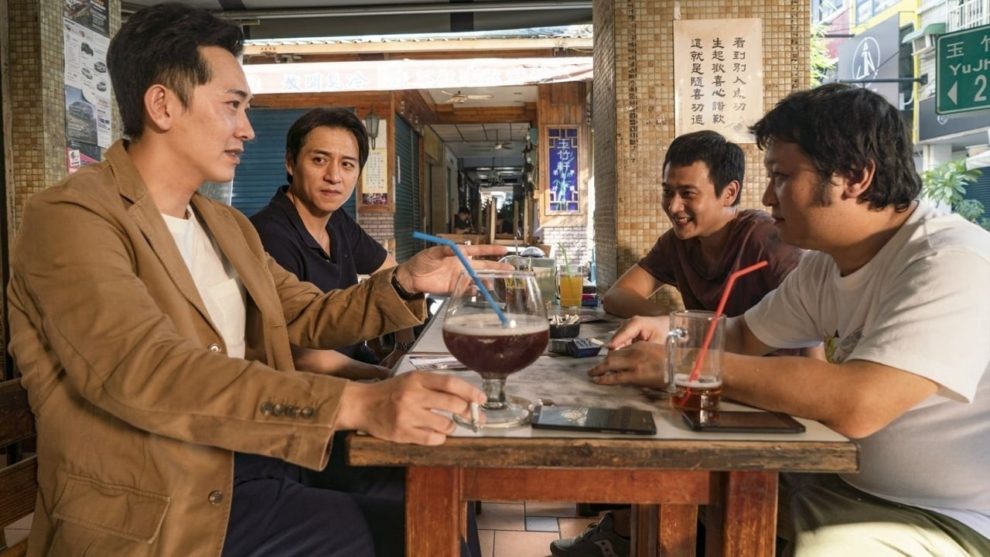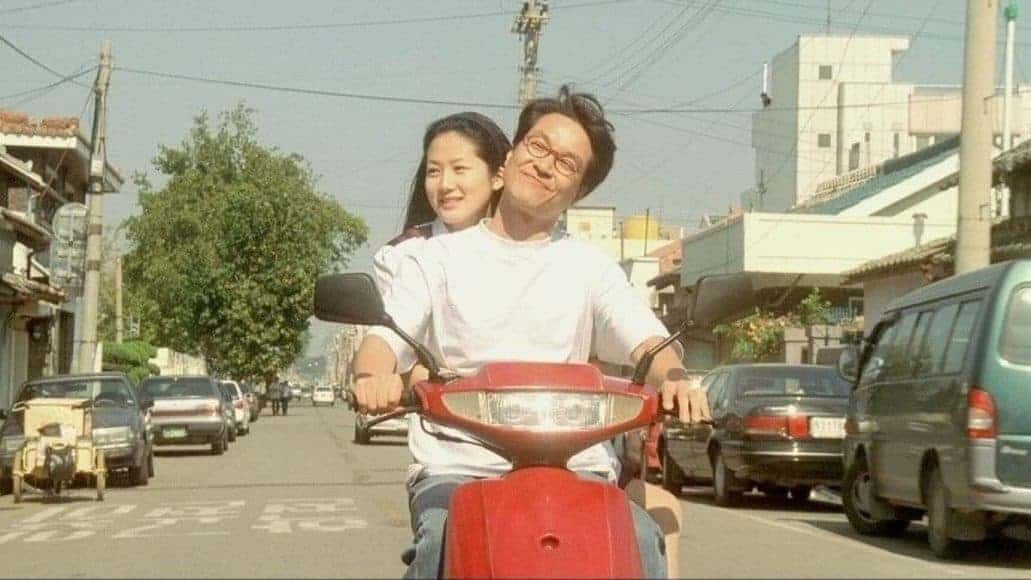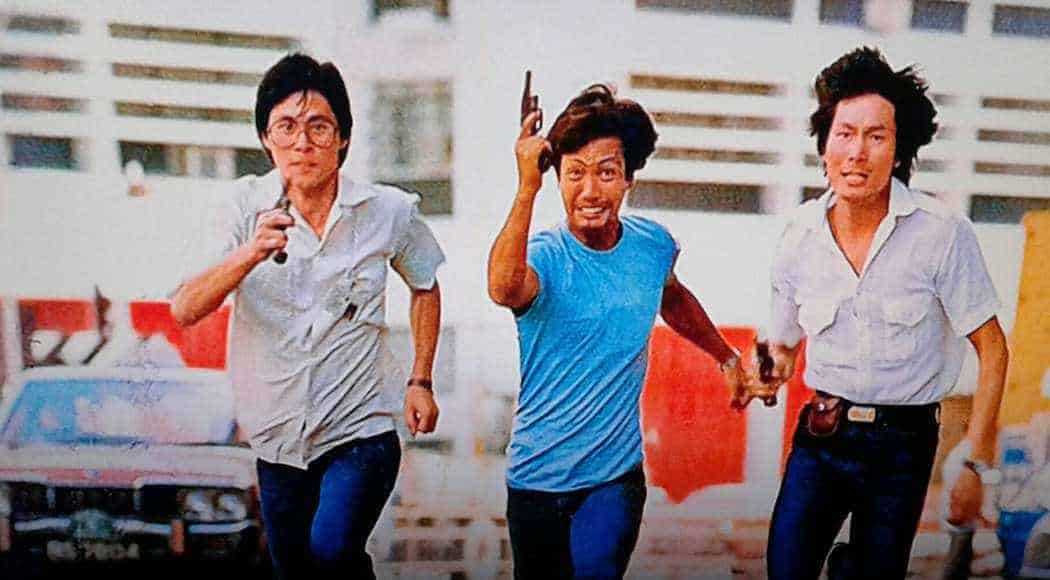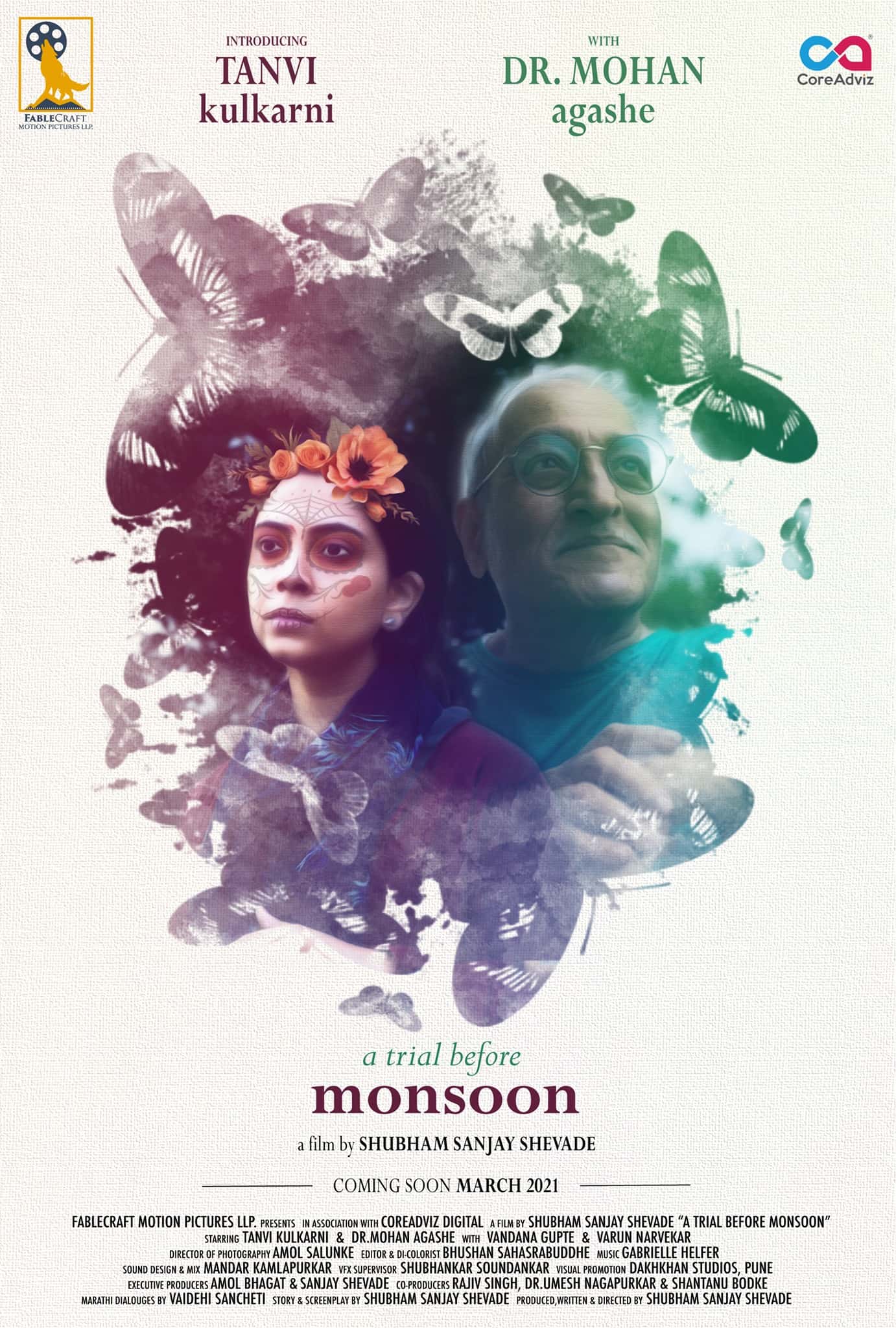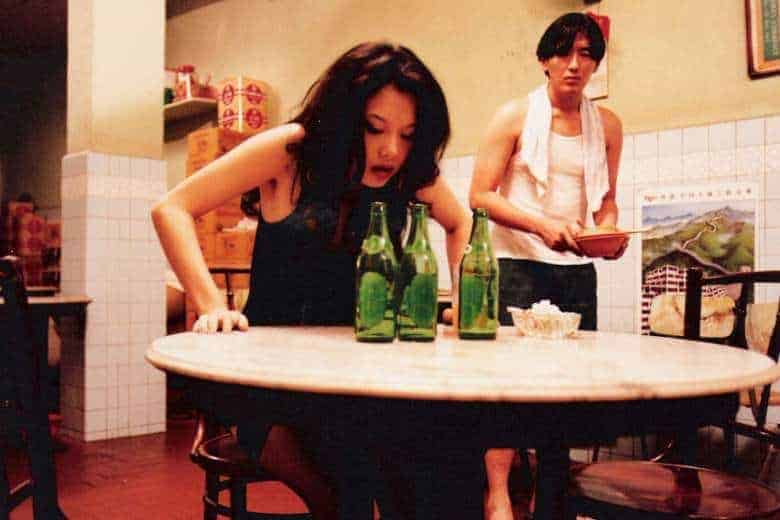After the exceptional “The Great Buddha+”, Huang Hsin-yao and his producer, Chung Mong-hong, had more money to spent, as the director himself states in the beginning of the movie, and apart from a motorcycle, they also decided to implement it in the actual production of “Classmates Minus”, which follows the same style, but on a bigger scale.
“Classmates Minus” is screening in Hong Kong Arts Centre on Saturday 28/8 at 4:30 pm
The story revolves around four, on the brink of middle age, former highschool classmates. Tom is a struggling director, who always plans his next script, but never manages to materialize anything. Eventually, his interactions with the local mayor end up with him running for Congressman under Yi-wen Chen, the former Congressman, who sees in him a man he can manipulate. Blockage, who is nicknamed as such by his intense stutter, runs a workshop that makes paper constructions like houses or cars, for people who never managed to acquire one in their life. Fan Man works for an insurance company, under another former classmate, but both his professional and romantic life is unfulfilling. Tin Can, the saddest of them all, is so fed up with his life that has committed suicide, although his life eventually takes a meaning when he is offered a job performing election registration checks, and stumbles upon the high school beauty, a girl he was in love with since his young days. As mid-life crisis hits all four, they find themselves changing, meeting new people and experiencing new things, and inevitably, so does their friendship.

There were two narrative elements that made “The Great Buddha+” stand particularly out, and that was the “breaking the 4th wall” approach, with the director frequently addressing the viewer, occasionally even to talk about the actual production of the film, and secondly, the deadpan, ironic and quite intelligent sense of humor. Both of these elements are present once more, and in more abundance this time, resulting in a series of episodes, dialogues, and in general reactions, that can be only described as hilarious. Particularly the finale, brings them both together in the best way, in probably the most memorable scene in the movie, along with the one the director mocks himself for having the same actor play multiple roles in the movie.
Contextually, Huang uses the story of four middle-aged men, none of which can be described as particularly successful, in order to present a number of sociopolitical comments. The corruption of the officials is once more in the fore, with the way Tom ends up running for Congressman highlighting the concept in the most hilarious but also pointy fashion. The difficulty middle-age presents, in terms of love, friendship, and employment are also quite central here, with the film also showing how more difficult all these goals are for people who are handicapped, like Blockage, or not attractive, like Tin Can.
In general, the way Huang treats his characters is rather interesting, since he presents their faults in all their glory, occasionally gives them a break, but does not allow them to pursue it fully or without consequences, essentially painting them as tragic heroes, even if his approach lingers towards the humoristic. Also of interest is the way he presents women, with the six of them appearing in the movie having completely different hypostases: A dedicated wife, a femme fatale/manipulator, a prostitute, a soul mate, and the ideal one, in the sense that she manages to complete her loved one's sentences even as he is thinking them, form a group that analyzes the female sex in its most cinematic forms.
At the same time however, the amount of all the aforementioned characters, episodes and even jokes, gets a bit too much after a point, with Huang somewhat losing his sense of measure, resulting in a film that seems too long at 122 minutes, even if every element here is quite accomplished individually and Lai Hsiu-hsiung's editing has resulted in a rather fast pace that works well for the narrative
On the other hand, in terms of Chung Mong-hong's cinematography, “Classmates Minus” is even more impressive than its predecessor, as, in combination with Chao Shih-hao's excellent production design, has resulted in a number of sets that are truly wondrous to watch. The various rooms Tin Can visits, and particularly of his love object, the casino-like wedding reception, the corporate room, are all exceptional, as much as original in both conception and implementation.
“Classmates Minus” is a bit too much of “Great Buddha+” but remains a very intelligent, very funny and very pointy comedy that is also greatly shot.


